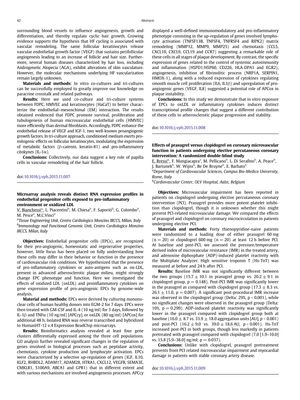Effects of Prasugrel Versus Clopidogrel on Coronary Microvascular Function in Patients Undergoing Elective Percutaneous Coronary Intervention: A Randomized Double-Blind Study
December 2015
in “
Vascular Pharmacology
”

TLDR Prasugrel is better than clopidogrel at preventing heart damage and improving blood flow in small heart vessels during heart artery procedures.
In a randomized double-blind study involving 40 thienopyridine-naive patients undergoing elective percutaneous coronary intervention (PCI), the effects of prasugrel versus clopidogrel on coronary microvascular function were compared. Patients were randomized to receive either a loading dose of prasugrel 60 mg (n = 20) or clopidogrel 600 mg (n = 20) at least 12 hours before PCI. The study found that post-PCI index of microvascular resistance (IMR) was significantly lower in the prasugrel group compared to the clopidogrel group (17.3 ± 8.3 vs. 26.1 ± 11.0, p = 0.007). Additionally, ADP-induced platelet reactivity was significantly lower in the prasugrel group both at baseline and post-PCI. High sensitive troponin T (Hs-TnT) levels increased post-PCI in both groups but were less marked in the prasugrel group. The study concluded that prasugrel pretreatment prevents PCI-related microvascular impairment and myocardial damage in patients with stable coronary artery disease.